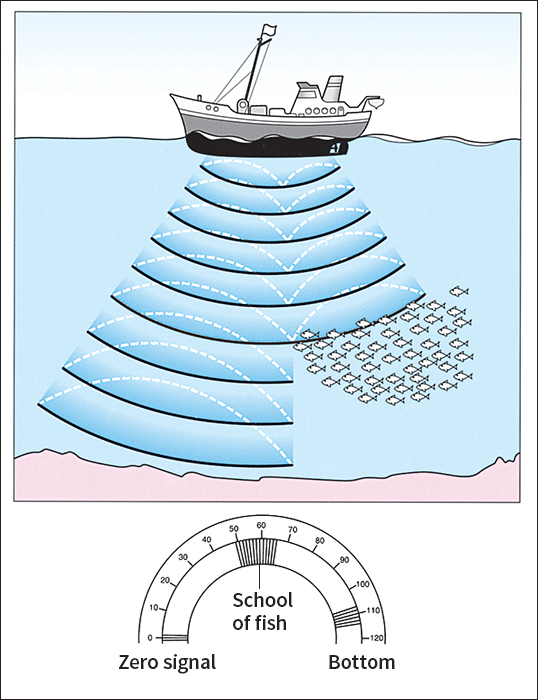Echo is a sound heard when it is reflected back to its source after striking some object. When we shout or clap our hands, we produce sound waves that travel through the air in all directions. We first hear the sound when the waves reach our ears by the most direct path (see Sound (The nature of sound)). If the waves also hit a large object, such as the side of a building, they bounce back and may reach our ears a second time. The second sound is an echo. It is probably named for the nymph Echo in Greek mythology (see Narcissus).
A single sound may produce more than one echo. Such repeated echoing usually occurs in valleys and canyons where there are many sound-reflecting surfaces. The sound waves bounce from wall to wall and may often produce several echoes. Such repeated echoes are called reverberation.
Echoes can help us find out how far we are from echo-producing objects. Sound waves travel about 1,115 feet (340 meters) per second. It takes 10 seconds for sound to reach an object a mile away and return. If a person who stands and shouts at the edge of a canyon hears the echo five seconds later, the canyon is about one-half mile (0.8 kilometer) wide.

Echoes are useful in many practical applications. Fathometers use underwater echoes reflected from the bottom of a body of water to determine the water’s depth. Ships at sea use sonar to detect and locate underwater objects from their echoes. Similarly, radar and laser range finders measure the distance to far away objects by detecting echoes from bursts of electromagnetic energy that reflect off these objects.
See also Bat (Echolocation); Radar (Pulse radar); Sonar.
